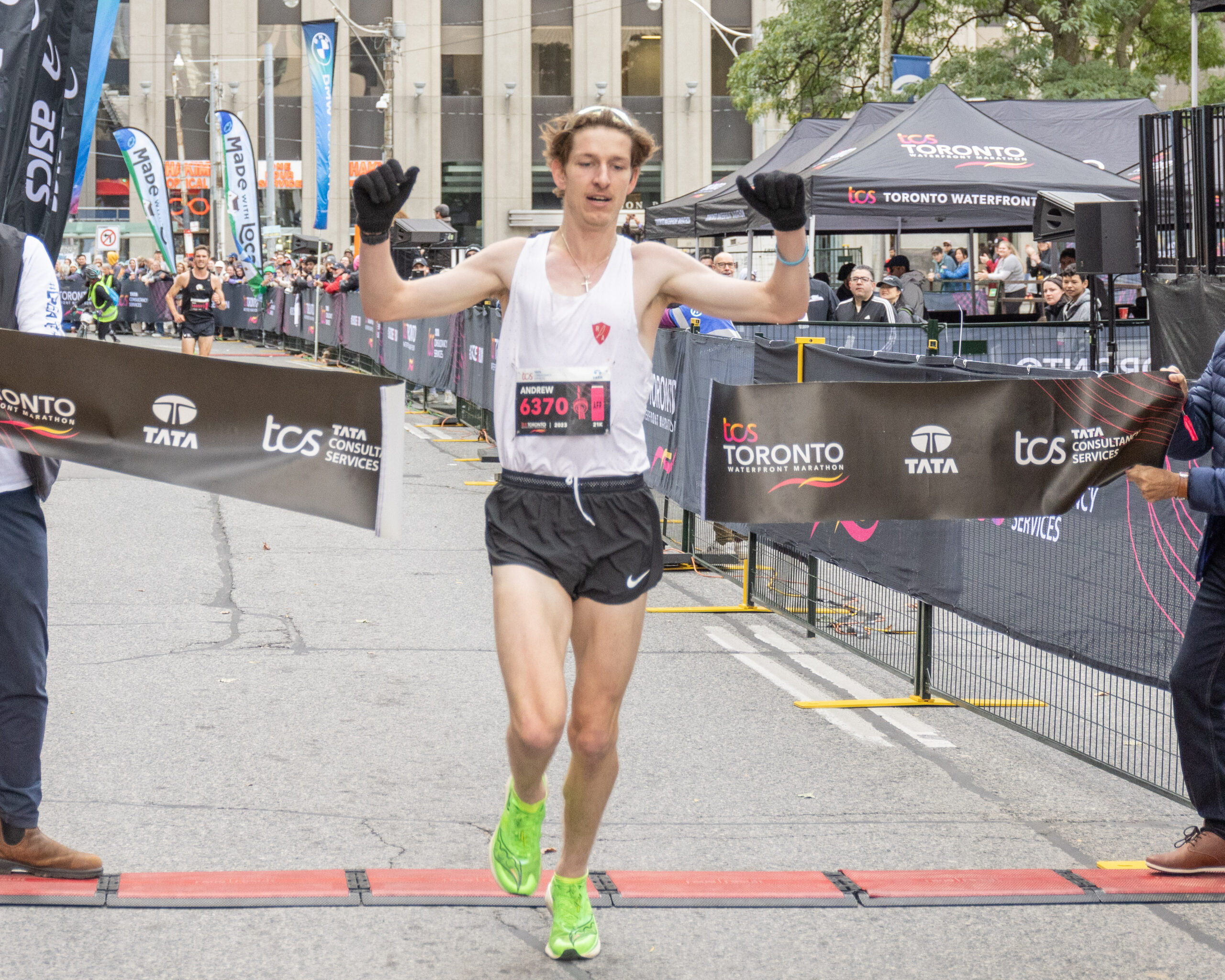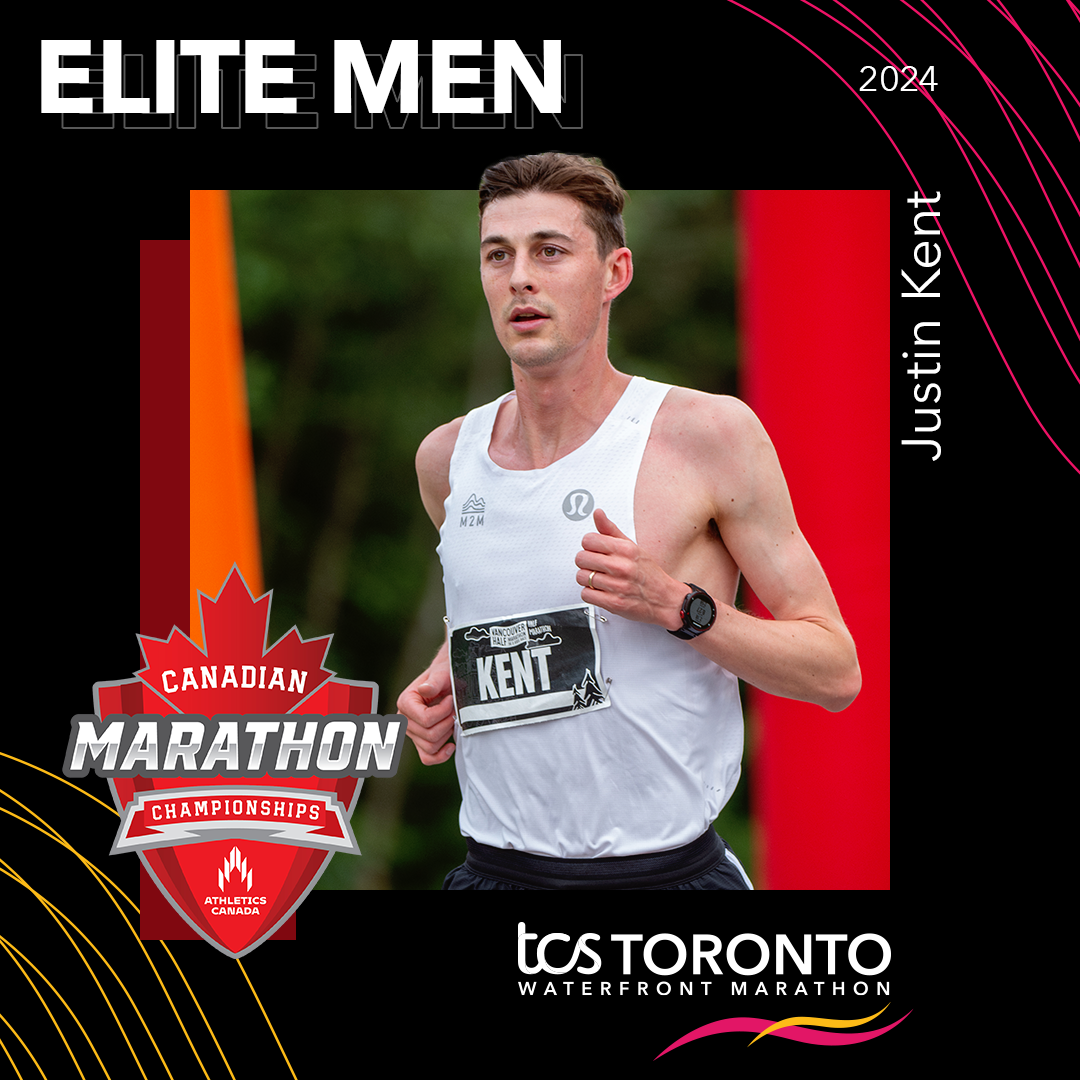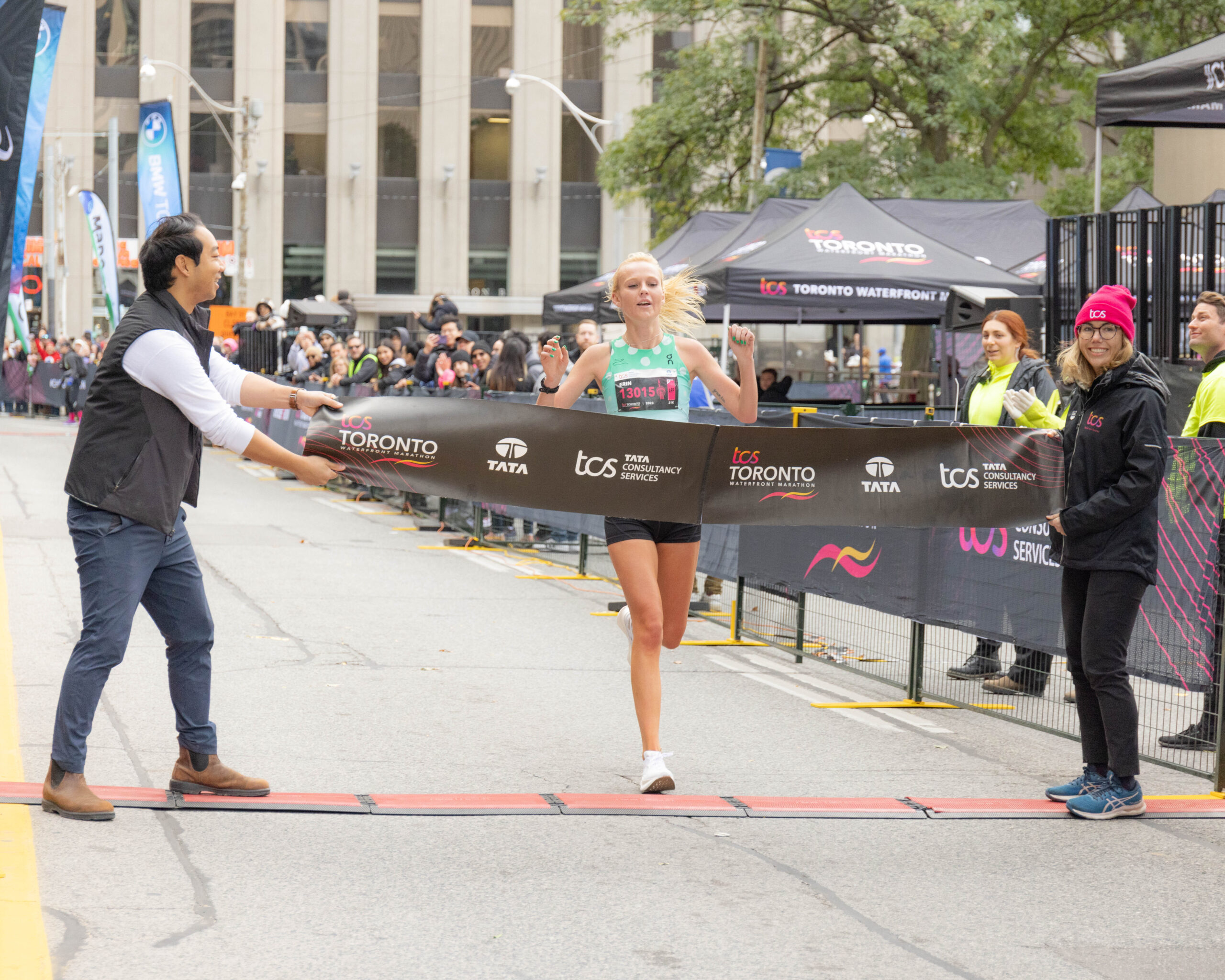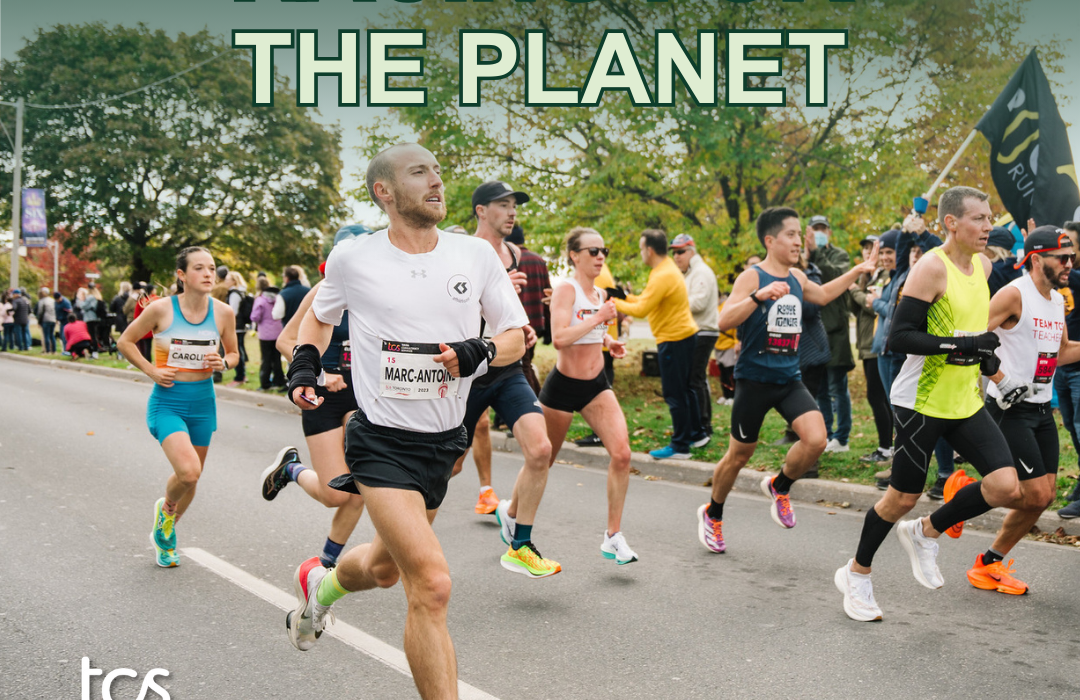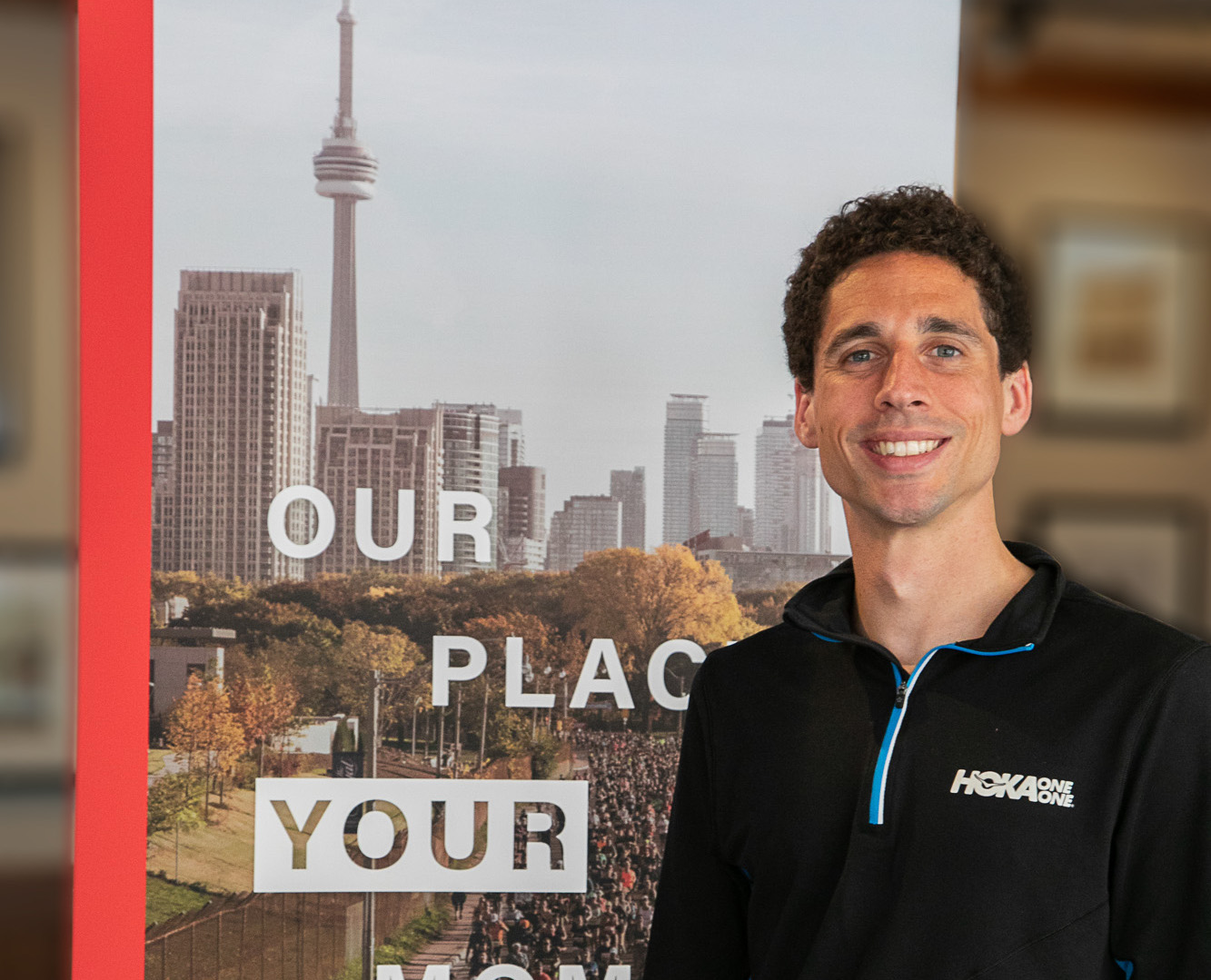 Cameron Levins is sitting at the head of the table, relaxed.
Cameron Levins is sitting at the head of the table, relaxed.
The Canadian marathon record holder is jointed by a small group of journalists for an informal luncheon in downtown Toronto after running the Lululemon Toronto 10k a couple days earlier. Everyone at the table introduces themselves, and Levins takes the final turn. He hesitates and then says, “Well, I’m Cameron Levins, and… you’re here because of me.” Everyone laughs, and not because they feel they are supposed to, but because no one expected Levins to be so forthright, and, quite frankly, funny. He gets right down to business after his awkward-turned-charming self-introduction. His real reason for being at the front of the table: that he will be returning to Toronto this fall for the marathon, and that he has a bold goal in mind.
The 30-year-old has come a long way in what has already been a career filled with perhaps the most extreme highs, and lows, of any Canadian distance runner in history. In 2012, the unheralded kid from Black Creek, B.C. single-handedly put Southern Utah University on the NCAA map, winning a pair of track championships, and doing legendarily massive mileage in the process. Levins became a folk hero to running nerds by crushing 300+ km weeks, and then legitimized his talent by making the Canadian Olympic team, doubling in the 5,000m and 10,000m in London. He finished a promising 11th overall in the longer event. It seemed like Levins was destined for greatness on the track.
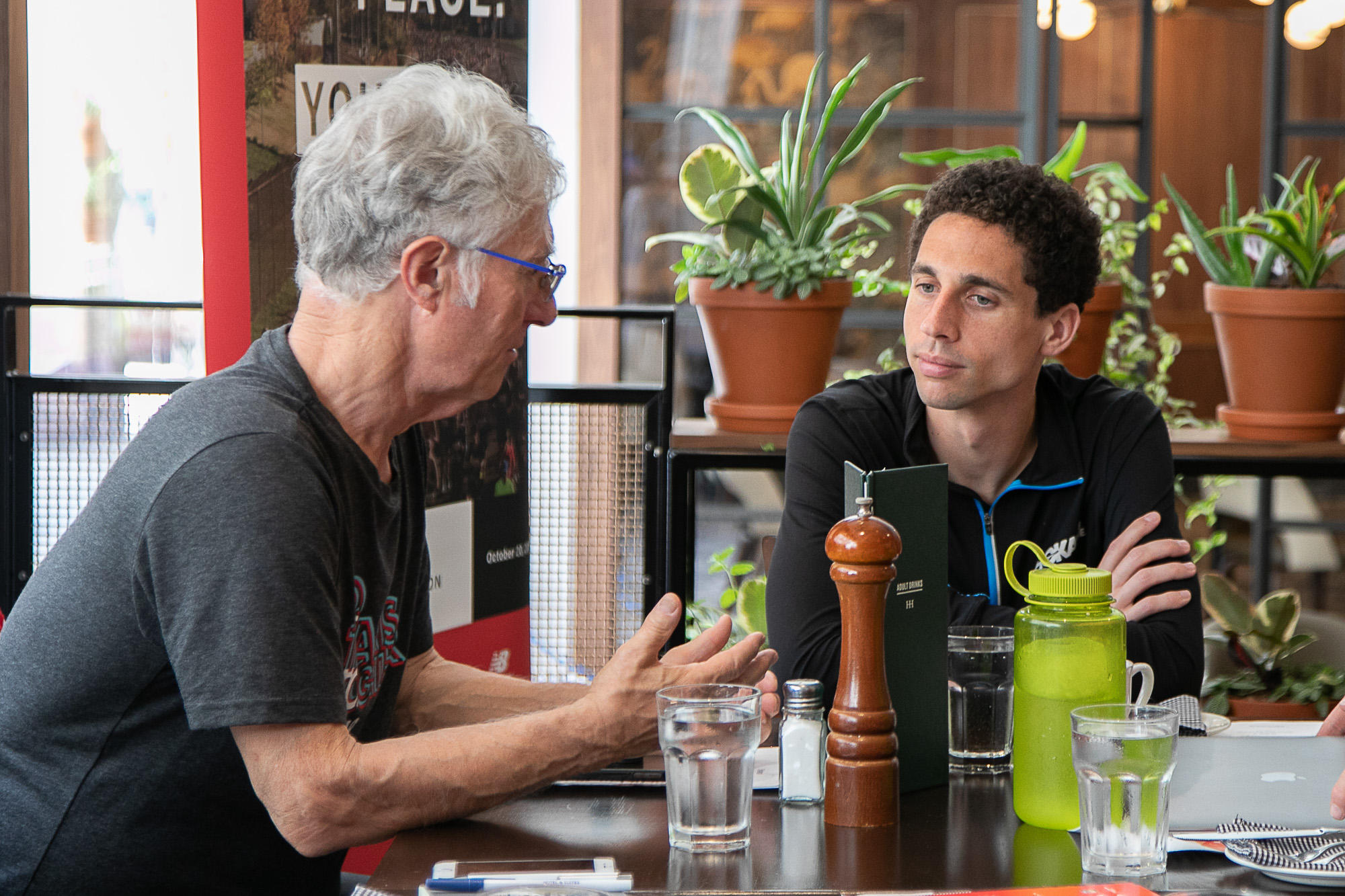
Levins with Canada Running Series head Alan Brookes
He was then invited to join Nike’s Oregon Project, considered perhaps the most prestigious training group in the world, training along side Galen Rupp and Mo Farah. After a few rocky years in Portland, Levins didn’t qualify for the 2016 Olympics, and was left with a destroyed foot, needing significant surgery to repair the damage. “I didn’t know if I would ever run again in a meaningful way,” Levins now admits. Nike moved on from him, yet he decided to remain in Oregon, and return to his university coach, doing periodic training camps at altitude in Utah. Many in the room wouldn’t admit it, but they probably had Cam Levins written off after his fall from greatness. The same worshippers of Levins legendary triple days (he still does them) and marathons-in-training, now turned to the LetsRun.com message boards to declare Levins washed up, before ever getting the chance to try his fitness out in a real marathon.
Levins digs into a burger. He ordered it with fries and not the optional house salad, as he’s about to embark on another extremely high-volume season of marathon training. Two days prior, he competed in the Lululemon 10K, which features a chunk of the marathon course. He refers to the 10K as a “rust buster” and seems un-phased that he placed fifth against competition he should be able to easily beat (Levins once held the 10,000m national record), and that it “didn’t feel easy.” But this is a different Cameron Levins. He is the marathon record holder, and, perhaps more importantly, he has found his way back to running on his terms.
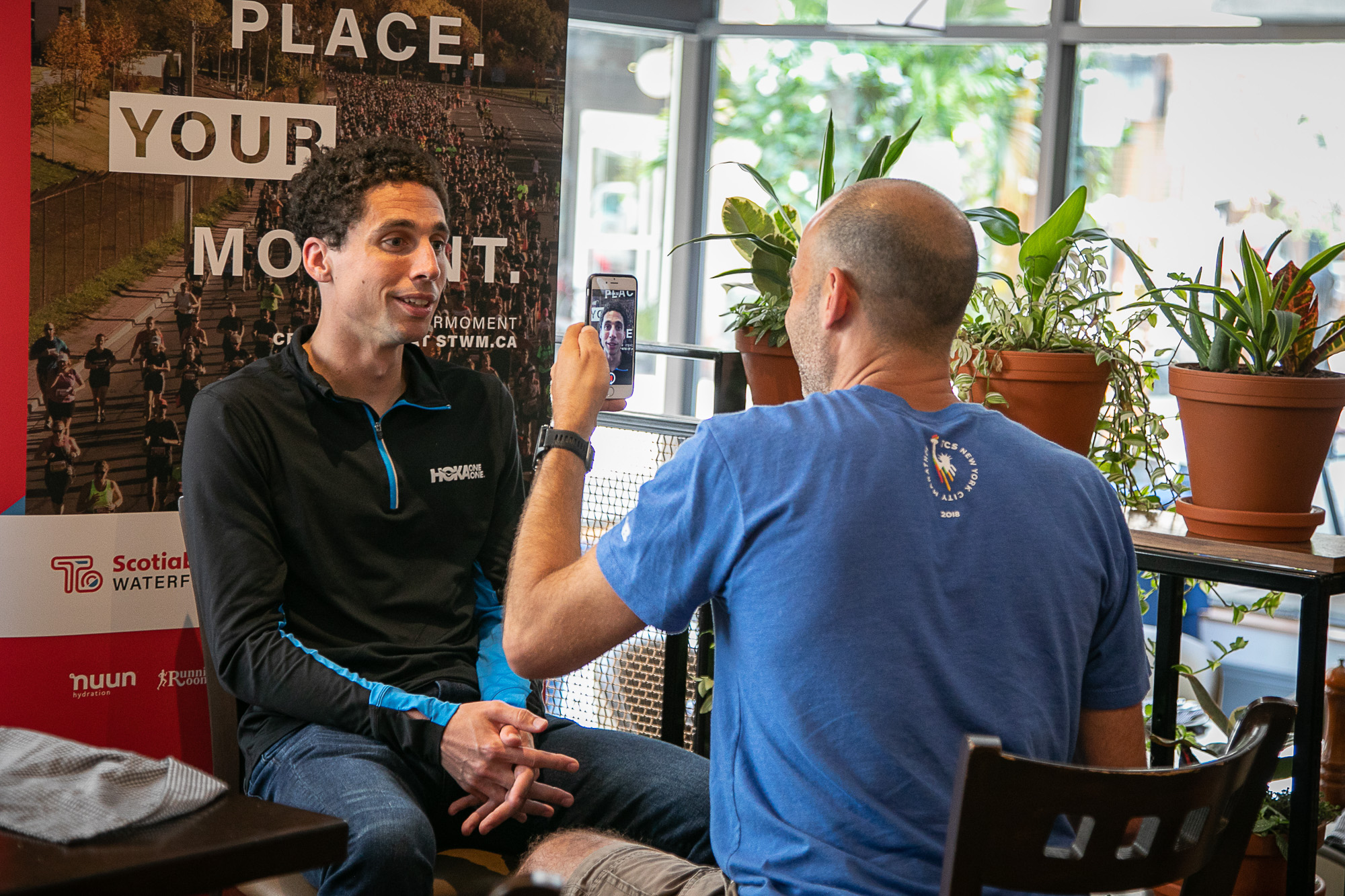
Levins being interviewed by journalist Ben Kaplan
Levins’ fall from what could have been the apex of his career began in 2015, with a disappointing Pan Am Games performance, coincidentally, also in Toronto. From there, he began to have serious foot issues, that he at first ignored. Finally, after failing to make the Rio team, having a surgery that left a screw in his foot, and then getting dropped by Nike, he was forced to face himself in a manner he now admits helped him become a better runner, and possibly a better person. “I’d put everything in my entire life into becoming what I was, and I then had to accept that my identity might be taken away from me.” At home in Portland, and without a clear future in the only thing he ever wanted to do, Levins had to rebuild himself, and start thinking about what life could be like beyond running. At first, a terrifying prospect, and then a freeing one.
Levins says that search and self-discovery—and not the comeback or the jaw-dropping marathon debut (2:09:25 and a definitive new national record)—is what has redefined him and his new-found ability to run with freedom and confidence, regardless of the particular outcome of one race. There is both a grace and a calm to Levins today, as he chats with a journalist about buying a new home in Portland with his wife, and settling in for another season of that legendary training (he still likes to triple, and still piles on massive weeks, now with lots of marathon pace effort). That comfort was on display last October, when Levins first followed a pacer, then took control of his race solo in the latter stages, patiently dolling out increased levels of intensity as he ran down Jerome Drayton’s 43-year-old record.
When asked about his plans for his second marathon, this fall on the streets of Toronto, he pauses and muses for a moment. Yes, he acknowledges that he plans on using the fact that it’s a key qualifying race for Tokyo in order to get back to the Olympics, this time as a marathoner. And he also feels he can lower his own national record. But there is something else. “I’m feeling way better than I was a year ago going into marathon training,” he laughs. “This time in Toronto, I’d like to be right there towards the end of the race, in a position to go for the overall win. I want to see if I can win Toronto. That would be special.”



